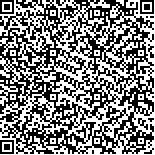| 引用本文: | 张智宣,李强,彭辉杰,葛晓虎,张继良.基于SLIPT的混合可见光/射频协作通信系统性能分析[J].哈尔滨工业大学学报,2022,54(5):34.DOI:10.11918/202108068 |
| ZHANG Zhixuan,LI Qiang,PENG Huijie,GE Xiaohu,ZHANG Jiliang.Performance analysis of a hybrid VLC/RF cooperative communication system based on SLIPT[J].Journal of Harbin Institute of Technology,2022,54(5):34.DOI:10.11918/202108068 |
|
| 摘要: |
| 传统无线通信传输和网络接入依赖射频通信技术。随着海量移动设备涌入,频谱资源匮乏、移动设备电能受限等问题对新一代物联网的可持续发展提出了严峻挑战。本文通过融合传统无线射频通信技术与新型可见光通信技术,构建一种基于可见光信息能量同传(simultaneous lightwave information and power transfer,SLIPT)的混合可见光/射频协作通信系统。为了建立可见光信源与远距离目的端之间的有效通信连接,考虑在光源的覆盖范围内存在一个随机移动的离网中继;通过中继转发,可将端到端链路分为可见光通信链路和射频通信链路两部分。在第一跳可见光链路中,中继将接收的光信号分离为用于信息解码的交流成分和用于能量收集的直流成分;在第二跳射频链路中,中继利用收集的能量将解码信号以射频方式转发至目的端。考虑可见光信源受到平均功率与峰值功率的双重约束条件,本文通过综合考虑两跳传输之间差异化信道状态、中继位置、中继信号处理、中继能量收集等不同因素,得到了系统端到端中断概率、数据吞吐量和能量效率的精确闭合表达式。仿真实验结果表明,通过选择合适的参数配置以平衡两跳传输之间的性能,本文所提方案能够有效促进复杂系统内部能量流和信息流的匹配,从而显著提升可靠性、吞吐量和能量效率等关键性能指标。 |
| 关键词: 物联网 可见光通信 可见光信息能量同传(SLIPT) 协作中继 端到端中断概率 |
| DOI:10.11918/202108068 |
| 分类号:TN92 |
| 文献标识码:A |
| 基金项目:国家自然科学基金(61971461); 湖北省重点研发项目(2020BAA2,1BAA015) |
|
| Performance analysis of a hybrid VLC/RF cooperative communication system based on SLIPT |
|
ZHANG Zhixuan1,LI Qiang1,PENG Huijie1,GE Xiaohu1,ZHANG Jiliang2
|
|
(1.School of Electronic Information and Communications, Huazhong University of Science and Technology, Wuhan 430074, China; 2.Department of Electronic and Electrical Engineering, The University of Sheffield, Sheffield S10 2TN, UK)
|
| Abstract: |
| Traditional wireless communication transmission and network access rely on radio frequency (RF) communication technologies. With the influx of massive mobile devices into the network, the problems such as spectrum scarcity and energy constraint pose challenges to the sustainable development of the new generation Internet-of-Things (IoT). Through the integration of traditional RF communication technology and emerging visible light communication (VLC) technology, an efficient and robust hybrid VLC/RF cooperative communication system with simultaneous lightwave information and power transfer (SLIPT) was proposed. To bridge the light-emitting diode (LED) source and the destination far away, an off-the-grid relay that can move randomly within source coverage was introduced. The end-to-end link could be divided into two hops (i.e. VLC link and RF link) through relay forwarding. Specifically, in the 1st hop, the optical signal received at the relay was separated into alternating current and direct current components for information decoding and energy harvesting respectively. Then, the harvested energy was used to forward the decoded source information to the destination by using RF in the 2nd hop. Considering the constraints imposed by the average power and peak power on the LED source, the distinct channel conditions across the two hops, the relay location, signal processing, and the energy harvested by the relay were taken into account in this study. On this basis, the end-to-end outage probability, data throughput, and energy efficiency of the system were analytically derived in closed-form expressions. Simulation results demonstrate that with proper parameter configurations, a balance could be reached between the transmission performances of the two hops. The proposed method could effectively promote the matching between the information flow and the energy flow in the system, thus significantly improving the reliability, throughput, and energy efficiency of the system. |
| Key words: Internet-of-Things (IoT) visible light communications (VLC) simultaneous lightwave information and power transfer (SLIPT) cooperative relay end-to-end outage probability |







